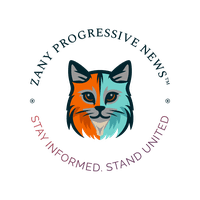
Recently updated on October 5th, 2024 at 12:47 pm
An Arizona grand jury alleged that Supervisors Tom Crosby and Peggy Judd engaged in a conspiracy and interference after the midterm election when attempting to expand the hand-count audit of ballots and refusing to certify the county’s results.
Votebeat is a nonprofit news organization reporting on voting access and election administration across the U.S. Sign up for our free newsletters here.
The two Cochise County supervisors who face felony charges for allegedly attempting to interfere with the certification of the county’s midterm election recently filed documents in court that give glimpses of the secret grand jury interviews that led to their indictment.
The filings by Supervisors Tom Crosby and Peggy Judd, the board’s two Republicans, reveal how state prosecutors attempted to connect the supervisors’ ploy to expand the county’s hand-count audit of its election results to an alleged conspiracy to delay or prevent the county’s elections results from being certified.
The documents quote grand jury interviews in depth, providing a view into proceedings that, under state law, must be kept private. The filings were originally public records, but are now not available publicly after the state requested they be sealed. Votebeat obtained them from local independent journalist David Morgan, who got them before they were sealed.
Crosby answered the grand jury’s questions in detail, while Judd invoked her Fifth Amendment rights and did not answer a single question, according to the documents.
Crosby also blamed Democratic Supervisor Ann English, who was at the time the chairman of the board, for the board’s failure to vote on the county’s Nov. 28, 2022, deadline to canvass, or certify, the election, stating that she didn’t put the correct agenda item on the agenda. “I didn’t delay,” Crosby told the jurors, according to his court filing, “Ann English caused the delay… She misagendized what was supposed to happen on the 28th.”
Meeting minutes show that the agenda item was to certify the election, as it was 10 days prior, too, when Crosby and Judd first voted to delay the vote. But the item did not include what Crosby had requested. Prior to the vote, Crosby wanted the supervisors to hear a formal debate between the Secretary of State’s Office and “experts” on voting machines. English said in an interview Thursday that, as chairman, she didn’t create meeting agendas — the board clerk does.
Hearing from Votebeat that these two filings, which provide short snippets of a 293-page grand jury transcript, were already circulating in the public, a spokesperson for Attorney General Kris Mayes said Thursday that the office is now going to request that the entire transcript of the grand jury proceedings be made public. Mayes, a Democrat, launched the initial investigation that led to the supervisors’ indictments.
Request for case to be remanded back to grand jury
The grand jury indicted Crosby and Judd in November for one charge of conspiracy and one charge of interference of an election officer, alleging they conspired to delay the canvass of votes cast and knowingly interfered with the Arizona Secretary of State’s ability to complete the statewide canvass. Both pleaded not guilty at an arraignment in December. A trial is scheduled for May 16.
Crosby’s motion to dismiss the case filed earlier this month, which Judd joined, presents their main defense: They believe state law provides them legislative immunity from prosecution for the conversations they have and their votes during supervisors’ meetings, because they act as the county’s legislative body. Legislative immunity was intended to apply to state lawmakers, and historically has, but Crosby and Judd say it applies to county officials, too.
They also deny any illegal actions, claiming that their duty to certify the election results are discretionary. “There is no unlawful act let alone any conspiracy by Supervisors voting their conscience,” Crosby said in the document.
But if the judge decides not to dismiss the case, Crosby and Judd in the recent documents ask the judge to instead remand the case back to the grand jury because they say they weren’t given fair proceedings.
Witnesses called before the grand jury during a two-day proceeding in November included Crosby, Judd, a special agent from the Attorney General’s Office, and County Attorney Brian McIntyre, according to Judd’s filing. The transcript of the proceedings are 293 pages, according to Judd’s filing, and not public — at least for now.
The supervisors believe the state should have informed grand jurors of what they believe to be the supervisors’ legislative immunity and should have better informed the jury about the law on supervisors’ role in certifying the election. Judd also says that the state didn’t properly inform the grand jurors of her Fifth Amendment rights.
Their other main complaint is with McIntyre’s testimony, which they felt was opinionated and shouldn’t be taken as evidence. McIntyre, a Republican, advised the supervisors in November 2022 not to expand the hand-count audit and to certify the election on time.
During grand jury proceedings, Crosby said, the state allowed “misleading testimony regarding the character and aim of the hand count, infra, to further its baseless conspiracy theory that the hand count was pursued to intentionally interfere with the Secretary of State’s duty to canvass the election.”
Crosby alleges that McIntyre gave testimony to the grand jury that was full of “his baseless opinions on the law in his effort to smear his own client.”
McIntyre did not immediately respond to a request for comment.
Richie Taylor, a spokesperson for the Attorney General’s Office, said the office declined to comment on the documents.
From hand counting to certification
The state prosecutors and grand jurors asked the witnesses many questions about how the effort to expand the county’s post-election hand-count audit of ballots unfolded.
Cochise County supervisors were among the many across the state that faced pressure from GOP leaders and activists to conduct a full hand count of ballots, claiming without evidence that ballot tabulation machines were not accurate or properly accredited.
A judge ruled the day before the election, on Nov. 7, that the supervisors and recorder couldn’t perform a hand count of all ballots cast, since the post-election audit under state law only includes a portion of ballots. But the supervisors still wanted to expand the hand count, and took steps to prepare, even after the judge’s decision.
On Nov. 14, without voting publicly to do so, Crosby and Judd sued Elections Director Lisa Marra for blocking the expanded hand count. Residents filed open meeting law complaints to the Attorney General’s Office, saying that decision should have been made in a public vote.
Expanding the hand-count audit at this point, when the elections director was attempting to prepare for an expected statewide recount and with the supervisors’ deadline for certifying the election two weeks away, might have made it difficult for the county to certify on time.
Crosby implied that the supervisors’ hand-count decisions were what brought the grand jury to its conspiracy charge. He said in his filing the state used its witnesses to present to the grand jury “a truly ridiculous (and itself misleading) ‘conspiracy’ theory that the efforts to conduct an expanded hand count constituted a conspiracy to interfere with the Secretary of State’s duty to canvass the statewide election merely because of how long an expanded hand count might theoretically take.”
Crosby revealed new details about that time period in his filing, claiming that he and Judd had both decided independently, without speaking to each other, to consult the attorney the board chose to represent them, Bryan Blehm, during the same time period and both independently agreed to file the lawsuit against Marra.
He wrote that he was “relying on [his attorney Bryan] Blehm’s obligation to advise the board of any possible illegalities.” Blehm is a former family law attorney whose work in election law began the year prior to the midterm, in 2021, when he represented the Cyber Ninjas in the partisan “audit” of Maricopa County’s 2020 ballots.
Crosby and Judd withdrew the lawsuit against Marra two days after filing it, on Nov. 16.
They then voted on Nov. 18 to delay the certification, also called a canvass, of the county’s election results, until Nov. 28. At the time, Judd stated that she wanted the hand count of 100% of ballots to back up the election results, and Crosby voted to delay the vote until the tabulation machines’ accreditation was “confirmed by persons with expertise in that field.”
After the supervisors’ second refusal to certify the canvass again on Nov. 28, the Secretary of State’s Office sued, and on Dec. 1 a court forced the supervisors to certify, prior to the Secretary of State’s deadline to certify statewide results. But Crosby didn’t show on Dec. 1, leaving Judd and English to cast the deciding “yes” votes to certify.
The recent filings do not provide the full picture of grand jury interviews.
With the release of these documents publicly, Taylor with the Attorney General’s Office said the office believes “this means the entire grand jury transcript should be released and we are going to work towards that.”
Taylor said he didn’t have an immediate timeline for when that would happen.
Jen Fifield is a reporter for Votebeat based in Arizona. Contact Jen at jfifield@votebeat.org.
This article was originally published by Votebeat, a nonprofit news organization covering local election administration and voting access.







